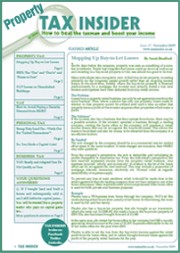Before you go, sign up to our free tax saving email course. Get 7 top property tax saving strategies in your email inbox that will help you save thousands in tax. Unsubscribe any time.
|
In relation to gains made on or after 23 June 2010, there will be two rates of Capital Gains Tax for individuals – a standard rate of 18% and a higher rate of 28%. The higher rate will apply to individuals whose total taxable income and post 22 June 2010 chargeable gains exceed the basic rate limit for Income Tax purposes of £37,400. Broadly, this means that higher and additional rate taxpayers will pay All gains realised by individuals before 23 June 2010 are taxed at 18%, regardless of the level of the individual’s income. Which Rate do I Apply? The impact of the change in rates and use of the annual exemption is illustrated by the following example: Example In May 2010 he realises a gain of £50,000 from the sale of an investment property. He makes a further gain of £100,000 from the sale a second property in July 2010. Gains made before 23 June 2010 are taxed at 18%. In relation to gains after 22 June 2010, Mark’s total taxable income and gains for 2010/11 for the purposes of ascertaining which rate applies is as follows:
As Mark’s total taxable income and post 22 June 2010 gains for 2010/11 exceed £37,400, the portion of the July gain above this limit will be taxed at 28%. As all gains before 23 June 2010 are taxed at 18%, it makes sense to use the annual exemption against the July gain to save tax at 28%. The May gain of £50,000 is taxed at 18%, giving a CGT bill of £9,000. As regards the July gain, the chargeable gain, after deducting the annual exemption, is £89,900 (£100,000 - £10,100). The portion up to the basic rate limit (£37,400 - £23,525), i.e. £13,875 is taxed at 18%. The remainder of the gain (£89,900 - £13,875), i.e. £70,625 is taxed at 28%. CGT payable on the July gain is therefore:
Mark’s CGT liability for the year is therefore £32,784.50. Entrepreneur’s Relief Practical Tip This article is from Property Tax Insider, a leading monthly UK tax magazine. Click here to slash your taxes today and get the first issue of Tax Insider for free. |


 Tax Articles
Tax Articles
